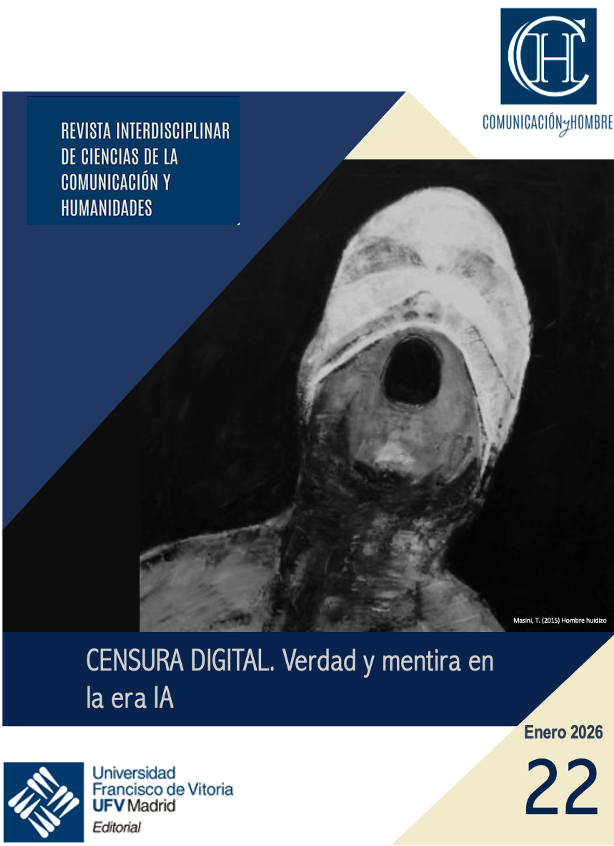Selection policies
The Magazine Comunicación y Hombre accepts original and unpublished articles on the subject of the publication that will be studied by the Editorial Committee for possible publication.
It is essential that the authors have the title of doctor to be able to publish, except in exceptional cases that will be studied individually by the Scientific Committee.
Comunicación y Hombre has three different sections in its acceptance policy: Studies, Research and Reviews. Each of these three sections always has in its selection policy a first acceptance from the editor of the magazine and the editorial committee of the same; In addition, the article must pass a formal review in which it is verified that it complies with the Publication Standards. Otherwise, the article will be returned for adaptation to the guidelines that the journal follows; You must also pass an anti-plagiarism control tool; Once these steps have been completed, all articles will be subject to Double Blid Review. This blind peer review will determine your acceptance, your acceptance with reservations or your non-acceptance. In the case of acceptance with reservations, the article will be returned to the author for adaptation according to the evaluator’s suggestions. Once completed, it will be returned to the magazine to restart the evaluation process.
The same article author may not publish articles in consecutive issues.
The Journal will send an acknowledgment of receipt of the papers received and once they have been evaluated, they will inform the interested party of their acceptance or, in the case of a negative evaluation, they will proceed to return them. The Editorial Board reserves the right to publish positively evaluated articles in the issue of the Journal that it deems most appropriate.
Each of the sections maintains its specific selection policies, which are stated below:
Studies
The Study Selection Policy contemplates the selection of those original articles of scientific quality that respond to the call to publish (call for paper) on the specific topic of study proposed, different in each issue of the Journal and proposed by the Directorate and the Editorial Committee, on current issues that concern communication and humanities at its intersection with different research areas and disciplines. The Magazine will invite renowned experts in the field to collaborate and will accept collaborations of interest on the proposed topic. The articles presented in the Study section must propose a research contrasted with the necessary internal unity and the relevant contributions that characterize the contents of a scientific publication. The studies will have between 4,000 and 10,000 words (neither the bibliography, nor the footnotes, nor the abstract will be counted). These items will undergo the Double Blind Peer Review.
Research
The Research Selection Policy contemplates the selection of articles whose research deals with any general subject related to the field of reflection and dissemination of the Journal, that is, communication in general based on humanism and with an interdisciplinary character. Free-choice research articles can be submitted subject to the disclosure objectives of this publication. The articles submitted to the Investigations section of the Journal, must propose an investigation contrasted with the necessary internal unity and the relevant contributions that characterize the contents of a scientific publication. The investigations presented to the Journal will have between 3,000 and 6,000 words (neither the bibliography, nor the footnotes, nor the abstract will be counted).
These articles will be submitted to the Double Blind Peer Evaluation.
Reviews
Of recently published bibliographic works from the scope of study of the Journal. As a general rule, reviews of works published in the last two years are accepted, although given the importance and relevance of any review, this limit may be extended. The reviews will cover between 1,000 and 2,000 words.
The authors will send their articles to “Comunicación y Hombre” through the OJS3 platform.
More information (criteria regarding)


